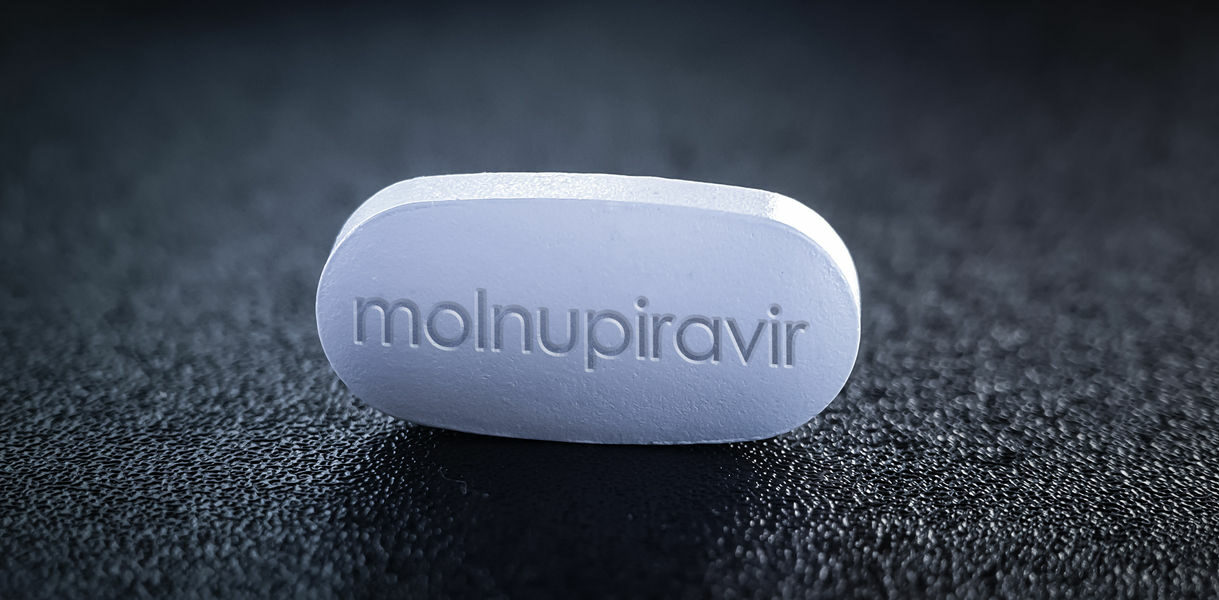Pandemic effect for Merck and Roche

Results and prospects for Merck and Roche. The comment by Jenna Denyes, Gam Investments senior healthcare analyst
In early October, Merck and Ridgeback Biotherapeutics announced that their oral drug, Molnupiravir , halves the risk of hospitalization or death among those infected with Covid-19. The oral antiviral drug works by introducing errors into viral ribonucleic acid (RNA) as it replicates, preventing the virus from making active copies of itself. In clinical trials, Molnupiravir led to a 50% reduction in hospital admissions and no deaths, compared with eight deaths in placebo-treated patients, with no serious adverse effects. Recruitment for the study was halted early due to the positive results, and the companies are looking to obtain an emergency use permit in the United States as soon as possible.
The developments are extremely encouraging. Although there are highly effective antiviral antibody treatments available, which show a 70% reduction in hospitalization, they must be administered in a hospital or clinical setting, with intravenous administration. Antiviral treatments that can be taken at home to keep people with Covid-19 out of the hospital are absolutely necessary. The encouraging efficacy data from Merck and Ridgeback Biotherapeutics are also positive for two reasons: first, safe and effective antivirals are tremendously complicated to develop; second, clinical trials on Covid-19 are extremely complicated to manage, as Roche and their partners Atea have sadly discovered.
On October 22, Roche and Atea announced that their promising antiviral AT-527 did not achieve the expected result in a phase II 'MOONSONG' clinical trial. Oral therapy was very promising because it inhibits viral replication in two different ways; reducing the likelihood of resistance, but also because it had an extreme safety profile, with no evidence of mutagenic adverse events. The summary of the clinical study showed a 50% reduction in viral load; however, beyond that, there have been some complications. The trial is likely to have failed for several reasons, including the changing context of variants over the course of the trial, a fickle vaccine status, and a large patient population that would dilute the number of errors. These complicated variables have also been observed in several clinical trials for Covid-19 vaccines and highlight the intricate reality of drug development. It is entirely possible that this drug will help in the real world; however, it is currently difficult to see the effectiveness of the data. Roche and its partners have many ongoing trials that they can now adjust and modify based on MOONSONG. They remain convinced that the mechanism of action will prevail and ultimately reduce the severity of the disease course. We await evidence from Pfizer's studies regarding the ongoing Phase III trial in high-risk patients, which is expected later this year.
Another positive evolution in the management of Covid-19, the Food and Drug Administration (FDA) has approved recalls for people at high risk due to age, underlying medical condition or occupational exposure. In addition, the combination and matching of booster doses from different manufacturers has been approved. Vaccine manufacturers reported decreased protection against mild to moderate infection after one year; however, the protection against hospitalization and death remains strong. The recalls will allow maximum protection for both the individual and the healthcare system, which is still grappling with the burden of pandemic patients alongside normal daily operations. It won't be the first country to offer the calls, but the positive recommendation is a strong signal that the market and other countries have been waiting for.
Merck's positive results, coupled with Roche's promising results and US vaccine recall approval, highlight the remarkable progress the biotech and pharmaceutical industries have made in responding to the Covid-19 pandemic. In terms of prevention, there are now a number of safe and effective vaccines approved around the world, with more than 6.75 billion doses administered since 21 October. We will soon have more tools in the arsenal to treat the disease, adding oral molnupiravir to the antiviral antibodies currently available to treat the actual viral infection, as well as the various anti-inflammatory and supportive treatments available for severe inflammatory disease. As a result, we can prevent most serious infections through a combination of vaccination and oral therapies, which should allow our health systems to recover and the rest of the world to breathe a sigh of relief.
Furthermore, progress should be viewed positively by the markets. We have already seen the focus shift from the Covid-19 news stream towards more typical macroeconomic concerns, and this should continue. We have also seen this at a more concentrated level in the health sector. Companies and management have begun to take a more strategic long-term view, illustrated by an increase in M&A activity. While it's hard to say for sure these days, there seems to be a brighter light at the end of the pandemic tunnel.
This is a machine translation from Italian language of a post published on Start Magazine at the URL https://www.startmag.it/economia/covid-19-risultati-merck-roche/ on Sun, 21 Nov 2021 07:26:36 +0000.
